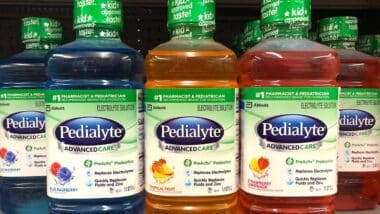 A spate of mycobateria infections has drawn attention to the heart surgery infection risk associated with a surgical heating and cooling device.
A spate of mycobateria infections has drawn attention to the heart surgery infection risk associated with a surgical heating and cooling device.
The device in question is the Sorin 3T heater-cooler system. It’s used to keep patients warm or cool as needed during different types of open-heart surgery like some transplants, bypass surgery, and heart valve replacements.
Many hospitals consider these machines essential for open-heart surgery. In the U.S., over 250,000 heart bypass surgeries are performed every year.
And about 60 percent of hospitals that perform open-heart surgery use the Sorin 3T system.
The Sorin 3T system controls the patient’s temperature by circulating temperature-controlled water. Because the water doesn’t come in direct contact with the patient, it was presumed not to create much of a heart surgery infection risk.
But as early as 2002, a study conducted at a German hospital found that the Sorin 3T system is prone to contamination and that disinfecting the mechanism is difficult.
The FDA has noted that the regular cleaning procedures for the machine aren’t always successful at removing the bacteria.
More recently, inspections and studies at the device’s manufacturing plant in Germany revealed the presence of mycobacteria in the facility. These bacteria can enter the machine and colonize.
During surgery, the machine’s exhaust fan can launch the bacteria into the air, allowing them to migrate as far as the open surgical wound, threatening the patient with heart surgery infection risk.
The resulting mycobacteria infection can take months or even years to develop. Sometimes patients become ill or die without ever knowing the actual cause.
From 2010 through the present, the FDA has received at least 79 reports of infection possibly related to the use of a Sorin 3T system during surgery. Twelve of those cases ended in the patient’s death.
Mycobacteria are hardly uncommon. They’re often found in soil and tap water, and they generally don’t pose any threat to healthy persons. Those who are already seriously ill or whose immune systems are compromise could be at serious risk, however.
FDA Warns About Heart Surgery Infection Risk
The FDA is now being criticized for what’s described as an overly sluggish response to the risk of infection associated with these devices.
Critics say the agency sat on evidence of the risk for 14 months before issuing its first public alert about the problem, and it took them two years to issue instructions to care providers on what to do about it.
The FDA says it had information about the risk as early as the summer of 2014. About that time was when it started investigating the issue, following an alert that Sorin sent out to hospitals about the problem.
At about the same time, there was an outbreak of infections at a hospital in South Carolina. The CDC discovered a higher-than-normal incidence of mycobacteria infection at Greenville Memorial Hospital, affecting over a dozen patients. Four patients ended up dying from their infections.
In the time it took for the FDA to take action, critics say, thousands of cardiac surgery patients could have been exposed to deadly mycobateria.
Do YOU have a legal claim? Fill out the form on this page now for a free, immediate, and confidential case evaluation. The hip implant attorneys who work with Top Class Actions will contact you if you qualify to let you know if an individual lawsuit or class action lawsuit is best for you. [In general, metal hip implant lawsuits are filed individually by each plaintiff and are not class actions.] Hurry — statutes of limitations may apply.
ATTORNEY ADVERTISING
Top Class Actions is a Proud Member of the American Bar Association
LEGAL INFORMATION IS NOT LEGAL ADVICE
Top Class Actions Legal Statement
©2008 – 2025 Top Class Actions® LLC
Various Trademarks held by their respective owners
This website is not intended for viewing or usage by European Union citizens.
Get Help – It’s Free
Join a Free Cardiac Heater-Cooler System Class Action Lawsuit Investigation
An attorney will contact you if you qualify to discuss the details of your potential case at no charge to you.
Please Note: If you want to participate in this investigation, it is imperative that you reply to the law firm if they call or email you. Failing to do so may result in you not getting signed up as a client, if you qualify, or getting you dropped as a client.
Email any problems with this form to [email protected].
Oops! We could not locate your form.












